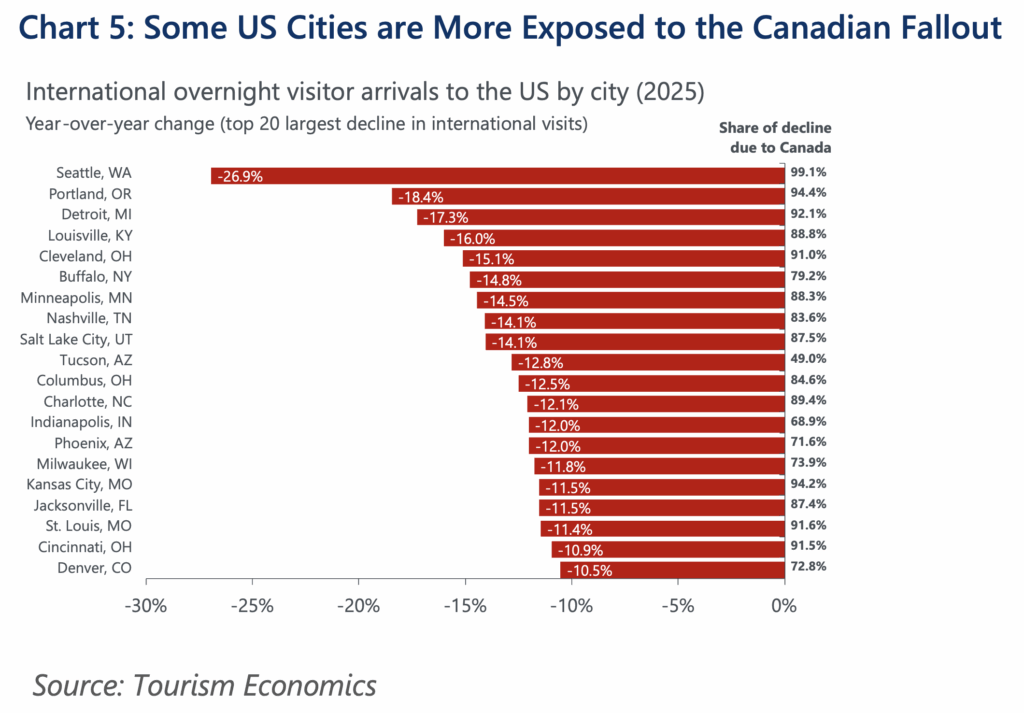International tourists are not coming to the US like they used to

By Andy Yemma
As predicted by tourism experts earlier this year, the number of international tourists visiting the US is down significantly this year. Reasons cited are many, but mostly political.
The US is perceived worldwide as not so welcoming to visitors, and some countries and their citizens are feeling disparaged by President Trump and his administration over tariffs, immigration, policing, and other policies.
Data collected by Oxford Economics through June 30, 2025, confirm the non-partisan research group’s forecast of an 8.2% decline in international overnight arrivals to the US for 2025, as sentiment headwinds persist.
The US Travel Industry added $1.3 TRILLION dollars to the US economy in 2024, accounting for 2.5% of Gross Domestic Product, according to the US Travel Association, the industry’s leading advocacy group. There are already drags on the economy in many sectors in 2025, including in-bound tourism.
Meanwhile, US travelers are going abroad are experiencing a decline in the value of the US dollar, which makes their trips more expensive. We recently visited Amsterdam; Lyon France; and cruised the Rhine River with AmaWaterways. The locals couldn’t have been nicer, the airport experiences easier.
Here are key finding from Oxford Economics:
- The fallout from Canada has been steepest, as land crossings and air arrivals contracted 28.0% and 13.3% year-to-date (YTD), respectively.
- The pullback in Canadian travel is expected to most negatively impact cities such as Seattle (-26.9% fall in overnight international visitors expected in 2025), Portland (-18.3%), and Detroit (-17.3%).
- Overseas arrivals fell 3.4% in June compared to a year ago, bringing the YTD decline to 1.2%. Among key markets, visitors from Ecuador, South Korea, Germany, and France have fallen the most. Strength in Argentina, Italy, and some Asian countries is partly offsetting the declines.
- The contraction in international arrivals is most acute in cities highly dependent on Canadian travel, particularly those closer to the northern border. For 2025, we forecast the steepest year-over-year declines will occur in Seattle, Portland, and Detroit.

Let’s hope things turn around. But don’t count on it.
